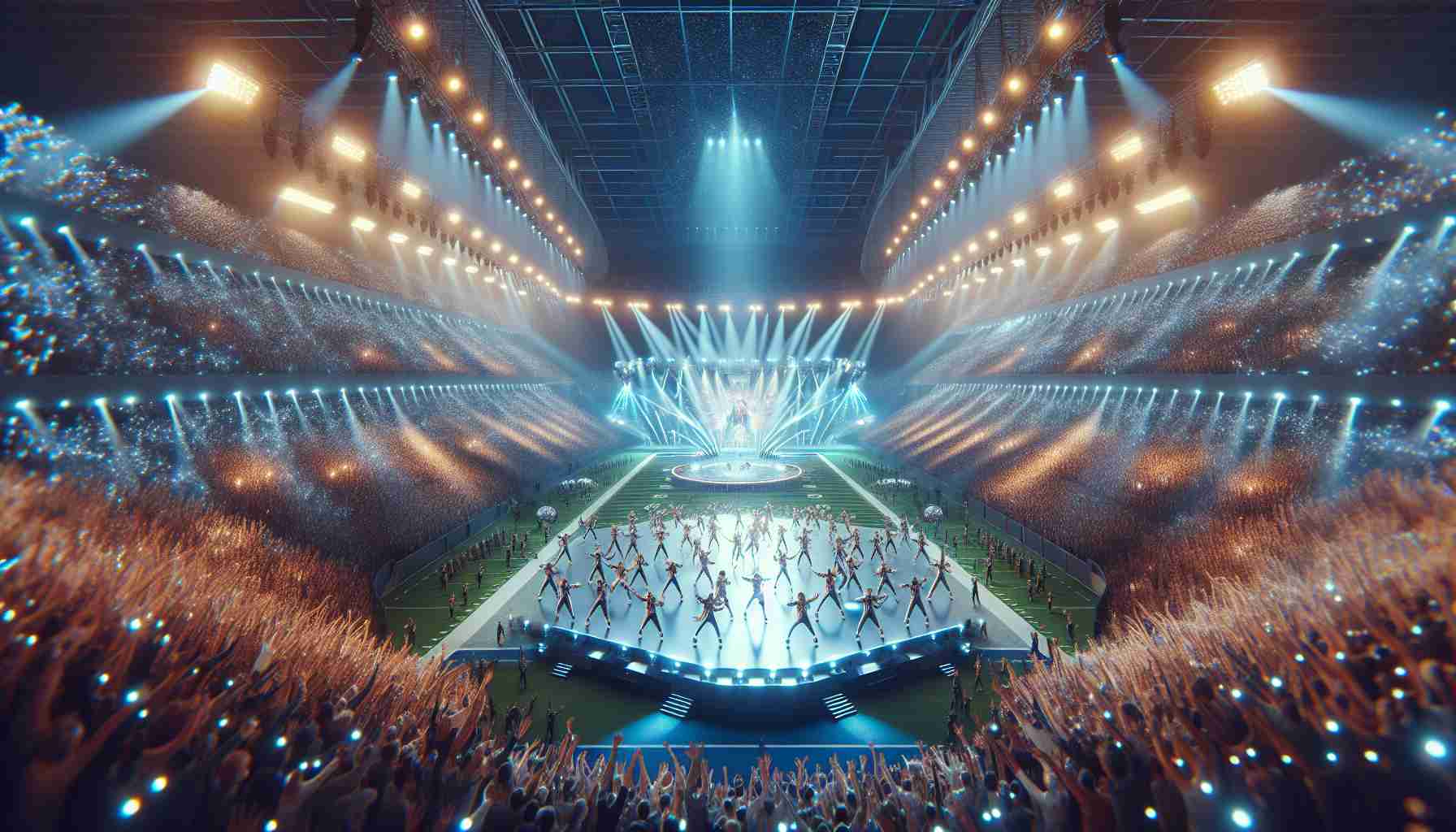- The Philadelphia Eagles’ victory over the Kansas City Chiefs became the most-watched Super Bowl ever, peaking at 137.7 million viewers.
- Kendrick Lamar’s halftime show performance broke records as the most-watched, showcasing his energetic style and lyrical depth.
- His performance highlighted a competitive homage to his rivalry with Drake, captivating audiences worldwide.
- There is nostalgia among some viewers for simpler halftime shows, such as those featuring high school marching bands.
- Since 2019, the NFL and Jay-Z’s Roc Nation partnership has aimed to align halftime shows with modern culture and social themes.
- The NFL continues to evolve its shows into major cultural events, blending entertainment and messages for a diverse audience.
A sea of viewers surged to their screens to witness the Philadelphia Eagles’ commanding triumph over the Kansas City Chiefs in what has now become the most-watched Super Bowl of all time. Topping 137.7 million viewers at its peak, this spectacle left a mark not just through the game, but through a halftime show that will be etched in history.
Kendrick Lamar, fresh off a Grammy sweep, took the stage by storm, captivating a massive global audience. His performance, rife with energy and lyrical mastery, paid homage to a storied rivalry with Drake through the chart-topping “Not Like Us.” As Lamar stood center stage, he wasn’t just delivering music; he was delivering a statement, cementing the show as the most-watched halftime performance ever.
Yet, this modern blend of rhythm and rivalry didn’t resonate with everyone. A cascade of comments filled internet forums, as veteran spectators reminisced about bygone days when high school marching bands added a touch of innocence. Lucinda, embodying a yearning for simpler times, lamented the evolution away from “good, clean entertainment.”
This transition in halftime ethos didn’t arise overnight. Since 2019, when Jay-Z’s Roc Nation partnered with the NFL, the focus has shifted towards mirroring contemporary culture while advancing social change. The aim? To weave entertainment with a message, crafting a cultural tapestry that today’s diverse viewership demands.
With eyes set on the future, the NFL continues to adapt, pulling more eyes and ears into its riveting narratives. Whether it’s Kendrick Lamar’s lyrical prowess or Roc Nation’s visionary leadership, one thing remains clear: halftime shows are no longer mere intermissions but cultural events in their own right. As streams and tweets fly, the Super Bowl promises more than a game—it’s a reflection of how we connect and celebrate, in all our discord and harmony.
Unveiling the Hidden Truths Behind the Record-Breaking Super Bowl and Halftime Show
The recent Philadelphia Eagles versus Kansas City Chiefs Super Bowl has made history as the most-watched event of its kind, amassing a staggering peak of 137.7 million viewers. This remarkable event wasn’t solely about football; it captivated audiences during Kendrick Lamar’s iconic halftime show, marking a new era in live performance entertainment.
Kendrick Lamar’s Halftime Breakthrough
Kendrick Lamar’s appearance came shortly after his triumphant Grammy wins, spotlighting his untouchable status in the music industry. However, one significant aspect not covered in the source article is that Lamar’s riveting performance aligned with the NFL’s strategic shift toward integrating cultural and social narratives in performances, initiated by Jay-Z’s Roc Nation partnership with the NFL in 2019.
Lamar’s set was not just a spectacle; it was a nuanced commentary on music industry rivalries, exemplified by his rendition of “Not Like Us,” touching upon his known competitive rivalry with Drake. Despite the electrifying nature of the performance, it underscores the NFL’s broader mission to merge sports with music and culture, engaging a diverse audience.
Social Media’s Role and Reaction
Although the performance was widely praised, there was a significant amount of discussion online, including criticism from traditionalists longing for the days when halftime shows featured simpler, more traditional performances such as those by marching bands. Internet forums and social media channels buzzed with contrasting opinions, highlighting how these performances reflect wider societal changes.
Roc Nation’s Cultural Vision
Roc Nation’s partnership with the NFL has played an essential role in the transformation of Super Bowl halftime shows, aiming to not only entertain but also infuse performance with meaningful messages and cultural relevance. This approach seeks to address and incorporate diverse cultural issues, pushing the boundaries of traditional halftime expectations.
Questions and Answers
What made this Super Bowl the most watched of all time?
The combination of an intense match between high-profile teams like the Eagles and the Chiefs, along with Kendrick Lamar’s groundbreaking halftime performance and extensive social media activity, contributed to its record viewership.
How has the halftime show evolved over the years?
In recent years, particularly after 2019, there has been a strategic shift toward modernizing halftime shows with contemporary cultural and musical influences. This evolution represents the NFL’s response to changing demographics and viewer expectations.
Why is Kendrick Lamar’s performance considered historic?
Lamar’s performance is historic because it not only drew the largest audience for a halftime show but also encapsulated a cultural statement intertwined with lyrical artistry and social commentary.
What does the future hold for Super Bowl halftime shows?
Given the success of integrating culturally relevant performances, future halftime shows are likely to continue pushing the envelope, utilizing the platforms to both entertain and provoke meaningful discussions.
Suggested Resources
For more information about Kendrick Lamar and the evolving nature of sports and music culture, visit these trusted websites:
– NFL
– Roc Nation
– Kendrick Lamar
